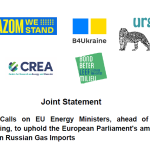A comparison between the G20’s fossil fuel subsidies and adaptation support for developing countries
As the G20 gears up for its 2015 summit just two weeks before COP21 in Paris, leaders have a unique opportunity to raise the bar high for climate action. Not only can G20 countries inject political momentum into the final weeks before the global climate summit, they can also make concrete signals to indicate that our economies are ambitiously moving towards full de-carbonisation by the middle of this century. The G20 should also lead the way to guaranteeing that developing countries will be fully supported in their efforts to combat climate change impacts, and develop their economies through low-carbon methods and technologies.
However, in order to maintain any integrity and credibility as climate leaders, G20 countries need to urgently tackle their on-going financial support for one of the main causes of climate change – fossil fuels. Not only are fossil fuel subsidies wreaking havoc on global efforts to curb climate change, they also soak up scare public finance from national budgets; the same financial sources could be used for important social and environmental actions both within G20 countries and internationally.
Empty promises
CAN Europe, Oxfam International and Oil Change International have developed the following info-graphic to illustrate the sheer contrast in government support when it comes to fossil fuels and support for climate action. Based on OCI’s report entitled Empty promises; G20 subsidies to oil, gas and coal production, we illustrate how scarce government resources are still being spent on the production of polluting fossil fuels. This on-going trend also counteracts overall ambition to tackle climate change while the figures that have been revealed dwarf the level of public finance being provided to developing countries to cope with the impacts of climate change.

The scope of the info-graphic details the approximate amount of government support through direct budget spending or foregone revenues from tax breaks. As mentioned, this is finance that could otherwise be used towards issues or work that would be far more beneficial to our society. The subsidies are set against the public, grant-based financial support provided to developing countries to help them deal with growing impacts of climate change.
Fuelling climate injustice
The figures illustrated thus represent as closely as possible the stark difference between government support for fossil fuel production and government support for climate change adaptation in developing countries. Our findings show that approximately 77 billion US dollars are being spent through direct government support for fossil fuels, while just 4-5 billion US dollars in grants have been provided for key adaptation projects in developing countries. The numbers speak for themselves; instead of fueling climate action, G20 governments continue to fuel climate injustice.
It is time to reverse the trend of financially supporting the fossil fuel industry. G20 governments need to understand that business as usual will not be accepted if they are to be regarded as serious players in the fight against climate change.
G20 leaders have both a duty to their own citizens and to the wider international community to halt their support for polluting industry as soon as possible. This is not only an important political step, it is also essential to safeguard communities and countries against the negative consequences of producing and burning fossil fuels.



